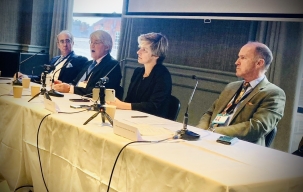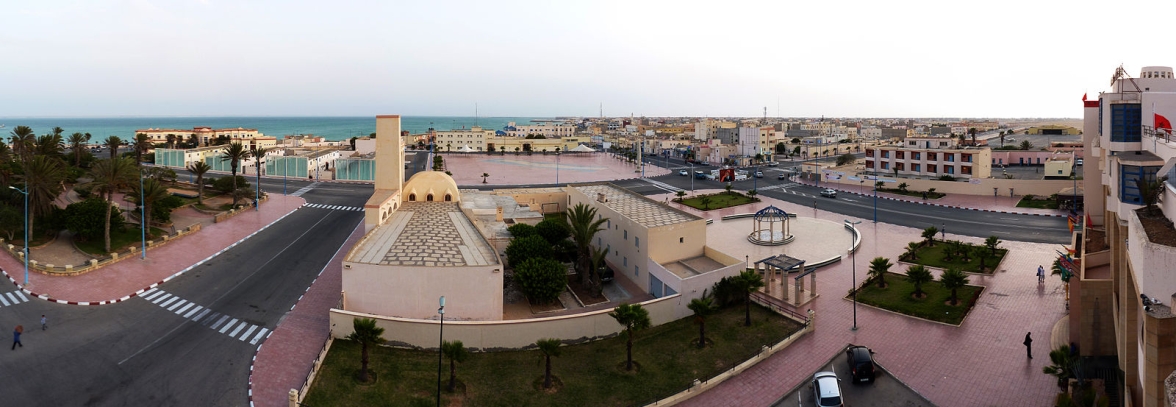The disputed territory of Western Sahara is approximately the size of New Zealand and is sparsely populated. It is situated along the north-western Atlantic coast of Africa, south of Morocco, with Algeria and Mauritania to the east. Although largely desert, the territory is rich in phosphate and its coastal waters are celebrated for their abundance of fish.
A Spanish colony
Western Sahara was a colony of Spain known as Spanish Sahara until 1975 when it was occupied by Morocco. Morocco claims the territory belonged to it before 1884 when it was annexed by Spain. It is the subject of a decades-long territorial dispute between Morocco and its native Arab Sahrawi people.
The native Sahrawi people and the Polisario Front
In 1975, the Sahrawi Polisario Front began what at first was a 16 year-long insurgency against Moroccan occupation. In 1991, the United Nations brokered a peace. Agreement included the promise of a referendum on independence which has yet to take place.
The referendum was first earmarked for the following year, 1992, but it never took place, ostensibly due to disagreements between the Polisario Front and Morocco.
The Saharan Arab Democratic Republic (SADR), declared by the Polisario Front in 1976, is now recognised by many governments and is a full member of the African Union. Morocco left the African Union in protest at the AU's decision but was re-admitted in January 2017 after a 33 year absence.
Moroccan settlers are said to constitute two thirds of the 500,000 or so population of Western Sahara.
The "berm"
In 1981, Morocco started constructing a buffer strip made primarily out of sand and other materials for fortifications, and bristling with around 5 million landmines. The "berm" stretches the length of the disputed territory and separates the Moroccan-administered western portion of Western Sahara, the so-called "Southern Provinces", from the eastern areas, controlled by the Polisario Front, known as the free zone, or the Sahrawi Arab Democratic Republic.
The berm is estimated at 1,700 miles in length (2,700 kms.) It is said to be the longest such structure in the world, as well as the world's longest continuous minefield. Approximately 100,000 Moroccan soldiers guard the berm. In places the structure extends several kilometres into official Mauritanian territory.
Morocco occupies an estimated 75% of the total territory of Western Sahara. The Polisario Front controls the remaining 20-25% of the Western Sahara territory as the Sahrawi Arab Democratic Republic (SADR), and continues to claim sovereignty over the entire territory of Western Sahara.
A seemingly intractable issue
Former US Secretary of State James Baker made probably the most intensive efforts of any international statesman in resolving the Western Sahara issue. In March 1997, Mr Baker was appointed as the Personal Envoy of the UN General Secretary for Western Sahara. He held a number of rounds of negotiations with Moroccan and Polisario officials but resigned in frustration at lack of progress more than 7 years later in June 2004.
He left behind the so-called Baker Plan, also known as the Peace Plan for Self-Determination of People of Western Sahara.
The Polisario Front rejected Baker Plan 1 because it offered the people of Western Sahara autonomy, but within a Moroccan state. Baker Plan 2 envisaged 5 years of Saharan self-rule followed by a referendum in which the Moroccan settlers were allowed to participate. Both the Polisario Front and Algeria accepted the Baker Plan as a solid basis for future negotiations and it was unanimously endorsed by the UN Security Council, but it was rejected by Morocco.
Other UN Special Envoys for Western Sahara followed Baker but also drew a blank in resolving this seemingly intractable issue.
Trump recognises Morocco's claim
On December 20th, 2020, Moroccan sovereignty over the entire Western Sahara territory was recognised by President Donald Trump, making the US the first country in the world to recognise Rabat’s claim. Recognition was a key factor in Morocco’s decision to sign the normalisation agreement with Israel and the US, known as the Abraham Accords, on December 22nd, 2020. President Joe Biden’s position on Western Sahara is under review.
The cause of regional tensions
The official United Nations designation of the Western Sahara is as a “non-self-governing territory.” The UN continues to monitor the ceasefire and to press for negotiations between the Polisario Front and Morocco.
The conflict has exacerbated poor relations between Morocco and its eastern neighbour Algeria, which has long supported the Polisario Front. It is one of the issues that led to the closure of the Morocco/Algeria border in 1994.
Mauritania’s founding president, Moktar Ould Daddah, also laid claim to Western Sahara but Mauritania later relinquished any claim and stated its support for Sahrawi self-determination.
Latest Moroccan autonomy initiative
In mid-March 2022, Spanish foreign minister Jose Manuel Albares backed a 2007 proposal by Morocco to offer Western Sahara autonomy under its sovereignty, describing it as the “most serious, realistic and credible basis” to end the long-running conflict.
Spain has supported the autonomy plan as a way to resolve a long-running dispute over Western Sahara, which Morocco considers as its own territory.
In April 2022, Madrid cemented its changed position when both Spain's premier Pedro Sanchez and foreign minister Albares made a landmark visit to Morocco where they were received by King Mohammed VI, ending 8 years of diplomatic crisis between the 2 countries.
Initiative welcomed by EU but rejected by Algeria/Polisario
The European Commission welcomed Spain's new position on the fate of Western Sahara as an autonomous region of Morocco, although it still supports a potentially different path of UN efforts aimed at a fair and mutually acceptable solution.
However, both Algeria and the Polisario Front condemned Spain's decision. In March 2022, Algeria recalled its Spanish ambassador and in the following month, the Polisario Front announced it was severing ties with Spain while repeating its long-held demand for an independence referendum.


